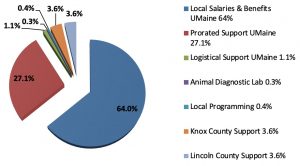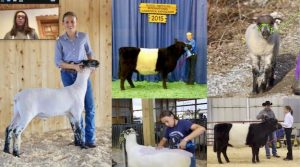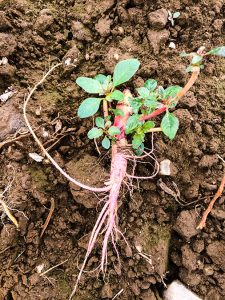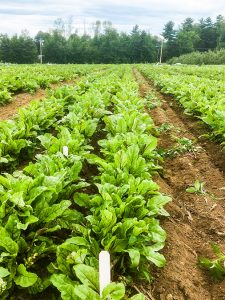2020 Annual Report
University of Maine Cooperative Extension Knox & Lincoln Counties
Putting university research to work in homes, businesses, farms, and communities for over 100 years.

The University of Maine is an equal opportunity / affirmative action institution.
Download a print-friendly copy of the 2020 Annual Report (PDF).
Table of Contents
- Knox-Lincoln County Extension Association
- UMaine Extension Knox-Lincoln Counties Staff
- University of Maine Cooperative Extension seeks volunteers to serve on the Knox-Lincoln Counties Executive Committee
- President’s Message
- UMaine Extension Knox-Lincoln Counties Financial Resources
- 4-H Youth Development
- Parent Education
- Home Horticulture
- Commercial Agriculture
- Climate Change
- Alliance for Maine’s Marine Economy
- The County Extension Act
Knox-Lincoln County Extension Association
Executive Committee
- Aaron Englander, President
- Craig Currie, Secretary
- Jack Green, Treasurer
- Dawn Jones
- Wendy Roberts
- Gail Varga
- Brett Willard
UMaine Extension Knox-Lincoln Counties
377 Manktown Road
Waldoboro, ME 04572-5815
207.832.0343 or 800.244.2104 (in Maine)
Fax: 207.832.0377
extension.knoxlincoln@maine.edu
UMaine Extension Knox-Lincoln Counties Staff
Extension Educators
- Mark Hutchinson
- Esperanza Stancioff
Professionals
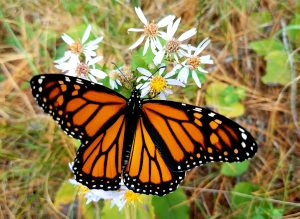
- Ellen Baker
- Marylou Cook
- Jennifer Doherty
- Heather Elowe
- Parker Gassett
- Gretchen Gee
- Ruth Griffin
- Keri Kaczor
- Ryan LeShane
- Hannah Pennington
- Brooke Sanborn
- Claudia Williamson
Community Education Assistants
- Cindy Rogers
- Liz Stanley
Administrative Specialist
- Pamela Doherty

University of Maine Cooperative Extension seeks volunteers to serve on the Knox-Lincoln Counties Executive Committee
UMaine Extension can only be successful with the help of county residents serving on the Executive Committee. Board members provide oversight and support to staff, as well as help promoting programs.
Knox-Lincoln Extension is one of the most active in the state, providing a broad range of programs: 4-H youth development, assistance to commercial farmers and home gardeners, support to communities facing climate change impacts including sea level rise, flooding and erosion in order to improve coastal resilience, and in-home education for new parents.
Executive Committee members are asked to attend four two-hour meetings a year focusing on county programming, building maintenance, and finances. Members can certainly follow their interests and become more involved in any of the county programs.
If you’re interested in UMaine Extension Programs and giving back to your community, serving on the Executive Committee is a great place to be! For more information, please contact Esperanza Stancioff 207.832.0343, in Maine 800.244.2104 or email: esp@maine.edu.

President’s Message
Dear Knox-Lincoln Cooperative Extension Community,
Spring Greetings! My first connection with the University of Maine Cooperative Extension was through a Research Assistantship at the Extension office in Orono. I spent many hours at the Rogers Farm in Old Town, on long trips to Aroostook County and other farms researching soil management for organic bread wheat production. I gained a lot from my experience as a graduate student working directly with Cooperative Extension, and it is my honor to give back by serving as President of the Knox-Lincoln Cooperative Extension Association Executive Committee (KLCEA-EC).
I am continually impressed by the breadth and depth of Knox-Lincoln Cooperative Extension’s work locally, throughout the state of Maine and beyond. From infant and early childhood support for young families to climate change initiatives; technical support for home gardeners and commercial farmers; Master Gardner volunteer programs; composting expertise at the state, national, and international level; and countless programs for local youth through 4-H clubs, Blueberry Cove 4-H Camp & Learning Center, and other collaborating sites, KLCEA has a major impact on the community.
The broad-reaching, diverse programs and services offered by KLCEA are a true gift to the community. I want to extend a heartfelt Thank You to all the staff, Executive Committee members, volunteers, and program participants who make Cooperative Extension what it is: a truly cooperative, community-based program that serves the greater good. We must also take a moment to thank the University of Maine that funds Cooperative Extension’s professionals, researchers, and educators; and tax funding from Knox and Lincoln Counties that supports the facility in Waldoboro and salaries for essential support staff.
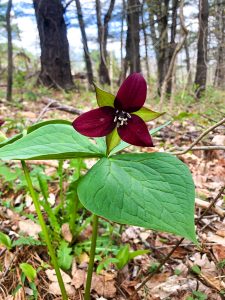
The EC committee oversees the budgeting, facilities management, vision, and program direction of KLCEA. We are a volunteer committee that is always seeking new members who share a vested interest in the community well-being
of Knox and Lincoln counties. If you are interested in joining the EC or being involved with the KLCEA as a volunteer or in any capacity, please contact our office for more information.
Please enjoy this report and you may be as amazed as I at all the great work going on at Knox-Lincoln Cooperative Extension.
Sincerely,
Aaron Englander, KLCEA Executive Committee President
Maine Coast Heritage Trust
Erickson Fields Farm and Program Manager
Rockport, Maine
UMaine Extension Knox-Lincoln Counties Financial Resources
The graph below illustrates the financial resources for programs offered, supported, and managed from the Knox and Lincoln Counties office. Each year, Knox and Lincoln Counties’ tax dollars support UMaine Extension with physical office space, support staff salaries, office supplies, equipment, and programming expenses.
As a unique partnership among federal, state, and county governments, UMaine Extension uses funding from Maine counties and the University to match and leverage support from the United States Department of Agriculture, other federal grantors, state agencies, and private foundations. Each UMaine Extension county office is also part of a statewide organization and the national Extension system.
- 4-H Public Speaking was successful in 2020 despite Covid-19 restrictions. Prior to quarantine, Knox-Lincoln 4-H members presented on the stage at the 2020 Maine Agricultural Trades Show in Augusta, Maine, in January, and held the county public speaking tournament in-person in early March. Shifting quickly, the Maine 4-H Public Speaking Tournament was held as a live, virtual event. Served 28 youth from 12counties; 8 from Knox-Lincoln. 85% of youth reported increased confidence, 58% said it helps them in school, 100% anticipate using public speaking in future careers.
- The 4-H Virtual Exhibit Hall, a substitute for canceled fairs, was built on the Extension website. 4-H youth from all over Maine submitted photos of their projects for judging. Volunteers and staff from several counties served as judges.
- Maine 4-H Summer Learning Series served over 100 youth with 50 hands-on workshops and activities led by 4-H Staff (including Knox-Lincoln), Volunteers, and Youth. Delivered online, or with kits mailed to homes.
Information: ryan.leshane@maine.edu
- Screen shot from the Maine 4-H Public Speaking Tournament, held as a live, virtual event in 2020.
Parent Education
Maine Families Home Visiting Program

- As part of a statewide network of Maine Families Home Visiting Programs, our team of six parent educators provided 1,401 home, virtual and phone visits to 143 families and 154 children, living in Knox, Lincoln and Sagadahoc Counties.
- Using the evidence-based Parents As TeachersTM Model, our team provided research-based information and caring support to fit each family’s needs and concerns, supporting parents in their role as their child’s first and most important teacher.
- Results collected this year show that 91% of children enrolled had a timely developmental screening. In cases where a delay was discovered, 100% of those children were successfully referred and connected with local intervention programs for further developmental evaluation and services. 100% of
families who completed our annual parent survey reported Maine Families helped them understand their child’s growth and development. - Before the current health crisis, Maine Families was already a critical link for new and expectant parents, providing one-on-one support at no cost to eligible families, to promote maternal, infant and child health, foster healthy development and school readiness, and provide parenting support. Now more than ever, Maine Families is an essential service for families as they navigate social isolation, economic uncertainty, the challenge of balancing work without childcare, and other unique and heightened stressors brought on by the COVID-19 pandemic.
Information: jennifer.d.doherty@maine.edu
Home Horticulture

The Master Gardener Volunteer Program
- Master Gardeners volunteered from home or worked in isolation during the 2020 growing season. They donated produce from their home gardens, and joined food councils and gleaning organizations to support Maine Harvest for Hunger. They also wrote articles for Maine Home Garden News, designed pollinator-friendly gardens for public spaces, mentored new gardeners online, conducted gardening classes via Zoom, and answered questions on social media using research-based fact sheets. The 2021 Master Gardener Volunteer training will be designed as a state-wide online program.
Home Horticulture
- The pandemic inspired many to try gardening for the first time. UMaine Extension’s state-wide horticulture team developed multiple series of webinars and videos for beginner gardeners. The Victory Gardens for Maine series can be found on our Garden and Yard website.
- Over 475 client calls to Knox-Lincoln Extension included record requests for soil testing kits, continued questions about browntail moth, and interest in Plants for the Maine Landscape.
Information: elizabeth.stanley@maine.edu
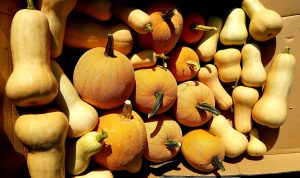
Commercial Agriculture
Local Farm Markets
- When Covid-19 began in 2020, local foods became a focal point for Maine consumers. Local farms were overwhelmed by the demand for locally produced vegetables, meat, poultry, eggs and other farm products. For many farmers this meant a shift in marketing strategies, away from wholesale and restaurants with a pivot to direct consumer sales. Extension provided information and assistance to both consumers and farmers during the season to help make these connections. These include the Maine Farm & Seafood Products Directory, as well as guidelines for best practices for farmers markets and farm stands.
Crop Consultations
- Over 250 individual crop consultations were made during the 2020 growing season. Farm visits were limited but with the use of technology many diseases and insect pests were identified and managed.
Field Research
- We were able to complete the first year of a Northeast Sustainable Agricultural Research and Education (SARE) tarping research project. Tarping is a practice of interest to many commercial organic vegetable and small fruit growers for weed and soil moisture control.
- The University of Maine is developing a compost nutrient loss model. This model will help state and federal environmental agencies determine the amount of nutrients lost during the compost process. The information will then allow compost operations to develop better management plans for commercial scale operations. Initial data indicates nutrient losses from composting are minimal.
Information: mhutch@maine.edu
- Pigweed –Mark Hutchinson photo
- Beets grown as part of the SARE tarping research project –Mark Hutchinson photo
Climate Change
- Our Collaborating Toward Climate Solutions (CTCS) Project began June 2020 to support on-the-ground problem solving for the complex challenges that communities in Penobscot and Passamaquoddy Bays face: sea level rise, storm surge, stormwater, flooding, and erosion. Our CTCS team works closely with municipal officials to support communities “where they’re at” in adapting to local impacts. This includes learning about community priorities and challenges, and identifying potential service provider partners, best practices, and the potential for networks enabling towns to connect and learn from peer communities. Through work with local leaders we have developed a series
 of workshops to provide technical and strategic assistance for communities around flooding and sea level rise, storm damage and emergency response, stormwater infrastructure maintenance, energy efficiency, and community climate education. Along with partner organizations in the Climate Change Adaptation Providers Network, and in alignment with the Maine Won’t Wait climate action plan, we aim to build connections among coastal communities.
of workshops to provide technical and strategic assistance for communities around flooding and sea level rise, storm damage and emergency response, stormwater infrastructure maintenance, energy efficiency, and community climate education. Along with partner organizations in the Climate Change Adaptation Providers Network, and in alignment with the Maine Won’t Wait climate action plan, we aim to build connections among coastal communities. - Signs of the Seasons (SOS): A New England Phenology Program provides an opportunity for students, adults and families to contribute to science and improve their understanding of our changing climate by making observations of common plants and animals, such as American robins, monarch butterflies, sugar maples, and more. Community scientists record information about the occurrence of leaf-out, flowering, nest building, migration, and other life cycle events. Data collected through SOS is used by researchers and managers to better understand how our changing climate will impact species commonly found in New England. In 2020, we had one of the highest number of volunteers submitting data. Please join us by attending a virtual training to get started.
Information: esp@maine.edu
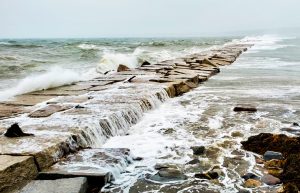
Alliance for Maine’s Marine Economy
- The Alliance for Maine’s Marine Economy is a responsive network of companies, organizations, and individuals dedicated to a vibrant marine economy for Maine. Coordinated by Marine Extension Team member Keri Kaczor, the Alliance helps enable healthy coastal working waterfront communities.
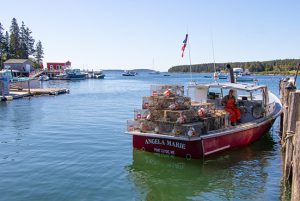
The Alliance’s initial bond funds supported Tenant’s Harbor Fishermen’s Coop/Maine Aquaculture Coop’s new ventures with scallop aquaculture. –Kathlyn Tenga-González photo - Initially formed in 2016 around a state-sponsored, citizens’ marine bond initiative (seven million dollars in public funds administered by Maine Technology Institute, plus more than seven million dollars in initial private investments), the Alliance enabled 17 investments in technology, infrastructure, and workforce development that are transforming Maine’s seafood economy. Six of those projects are located in Knox and Lincoln Counties.
- In 2020, the Alliance hosted a series of virtual forums featuring innovative strategies businesses are using to adapt to changing markets and consumer needs in the wake of COVID-19, and a panel of experts sharing the ass
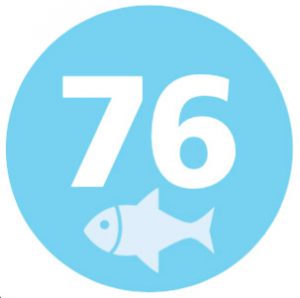 ets and resources that exist related to seafood safety and product diversification.
ets and resources that exist related to seafood safety and product diversification. - The Alliance’s investments in infrastructure and innovative technologies have allowed businesses to develop new products, increase revenue, and grow jobs in Maine’s coastal communities and economies. Since 2016, 76 new seafood products and services have been created.
Information: keri.kaczor@maine.edu
The County Extension Act
The County Extension Act explains the role of county government in funding local Extension offices.
Cooperative Extension work shall consist of the giving of practical demonstrations in agriculture and natural resources, youth development, and home economics and community life and imparting information on those subjects through field demonstrations, publications, and otherwise. For the purpose of carrying out this chapter, there may be created in each county or combination of two counties within the State an organization known as a “county extension association,” and its services available to all residents of a county. The county extension is viewed as a unique and important educational program of county government. The executive committee of each county extension association shall prepare an annual budget as requested, showing in detail its estimate of the amount of money to be expended under this chapter within the county or counties for the fiscal year. The executive committee shall submit to the board of county commissioners on a date requested by the county commissioners, and the county commissioners may, if they deem it justifiable, adopt an appropriate budget for the county extension program and levy a tax therefore. The amount thus raised by direct taxation within any county or combination of counties for the purposes of this chapter shall be used for the salaries of clerks, provision of office space, supplies, equipment, postage, telephone, a contribution toward the salaries of county educators and such other expenses as necessary to maintain an effective county extension program.1
1Excerpted from Title 7, Chapter 7 of the Maine Revised Statutes, §191–§195.

University of Maine Cooperative Extension’s successful educational programs result from a federal, state, and county government partnership. Since 1919, when the Maine Legislature passed the County Extension Act, the University of Maine has been in all Maine communities with a county office whose operations are funded by county government. Our educational programs anticipate and respond to local and state needs and issues. We also communicate those issues and opportunities to UMaine faculty to influence their research and development plans.
©2021
The University of Maine Cooperative Extension Knox-Lincoln Counties office is an EEO/AA employer, and does not discriminate on the grounds of race, color, religion, sex, sexual orientation, transgender status, gender expression, national origin, citizenship status, age, disability, genetic information or veteran’s status in employment, education, and all other programs and activities. The following person has been designated to handle inquiries regarding non-discrimination policies: Director of Equal Opportunity, 101 North Stevens Hall, University of Maine, Orono, ME 04469-5754, 207.581.1226, TTY 711 (Maine Relay System).
University of Maine Cooperative Extension COVID-19 Health and Safety Guidance |

